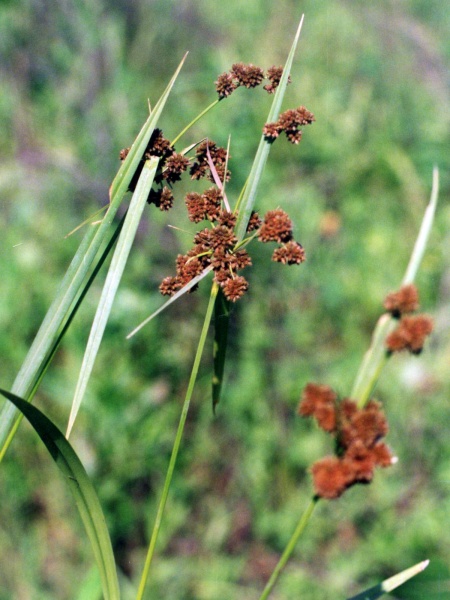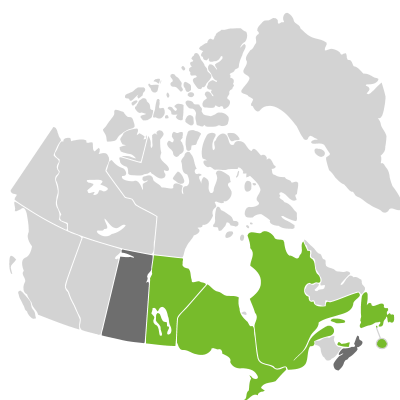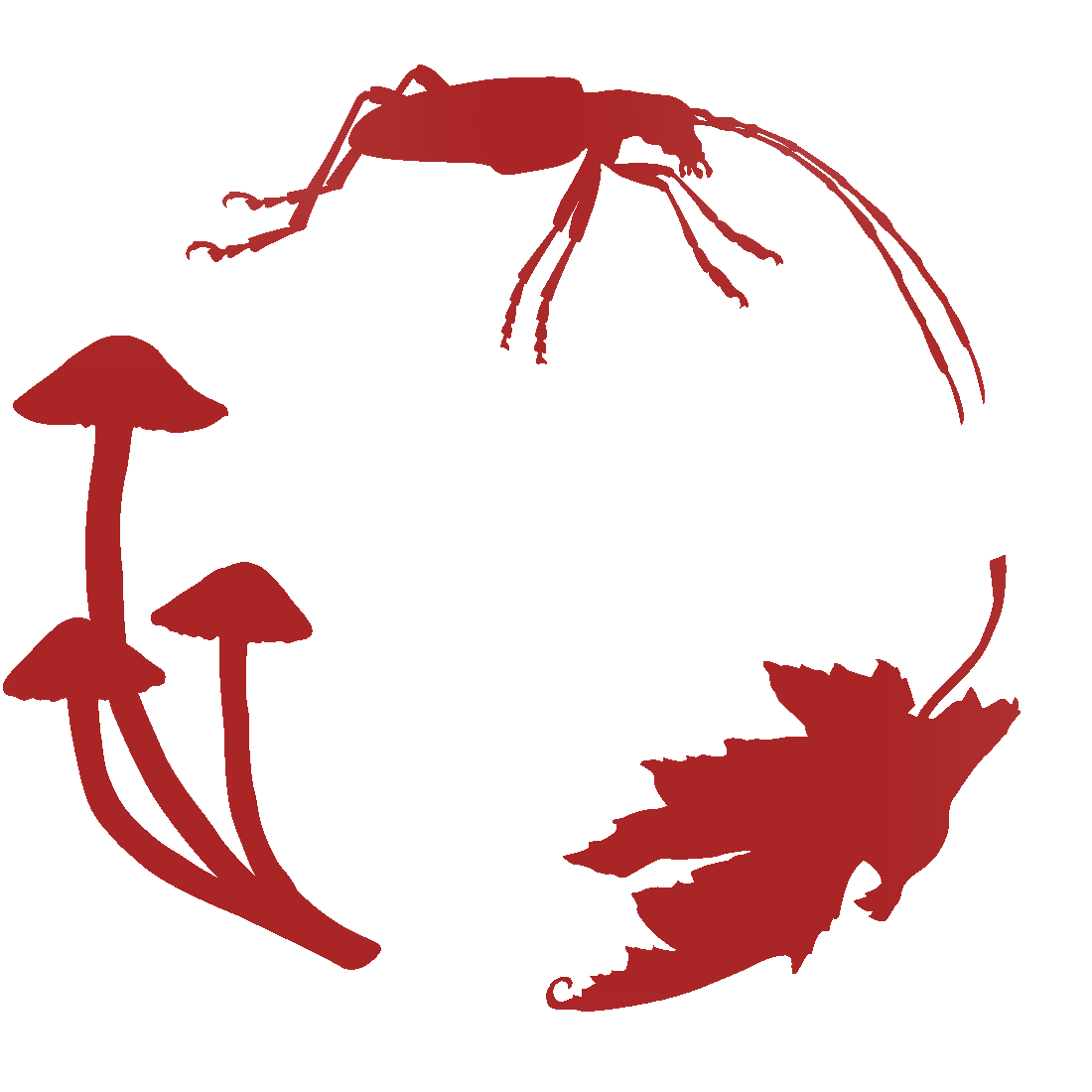
Source: Jennifer Anderson
Scirpus atrovirens
Dark-green Bulrush
Scirpe noirâtre
Synonyms
black bulrush
green bulrush
scirpe vert sombre
Seeds in stock
Available at table Mixed Sun, Wet
Available at table Mixed Sun, Wet
We currently accept seeds for this plant
Bloom Colour: Green
Bloom Period: Jun - Jul
Max Height: 5.0 feet
Max Width: 3.0 feet (spreads by rhizome)
Light Condition:
 More than 6 hours of direct sun a day
More than 6 hours of direct sun a day
 More than 2 or 3 hours but less than 6 hours of direct sun a day
Soil conditions:
More than 2 or 3 hours but less than 6 hours of direct sun a day
Soil conditions:
 Tolerates medium soil condition
Tolerates medium soil condition
 More than 6 hours of direct sun a day
More than 6 hours of direct sun a day
 More than 2 or 3 hours but less than 6 hours of direct sun a day
More than 2 or 3 hours but less than 6 hours of direct sun a day
 Tolerates medium soil condition
Tolerates medium soil condition
Lifespan:
Perennial
plants that will that come back year after year
Gardener Experience:
 Self-seeding
Self-seeding
 Self-seeding
Self-seeding
Landscape Uses:
 Suitable for wetland garden
Suitable for wetland garden
 Suitable for wetland garden
Suitable for wetland garden
Ecological Benefits:
No ecological benefits information available.
Tolerates:
 Tolerates transplantation
Tolerates transplantation
 Tolerates transplantation
Tolerates transplantation
Special Features and Considerations:
Plant Location
Native to Ottawa region: Yes
Distribution according to VASCAN

Ephemeral
Native
Introduced
Excluded
Extirpated
Doubtful
Absent
Thrives in Ecozones
- Atlantic Maritime
- Boreal Shield
- Mixed Wood Plains
Ecological Benefits
Butterflies Supported by Scirpus atrovirens
No butterfly data available for this plant.
Specialized Bees Supported by Scirpus atrovirens
No bee data available for this plant.
Plants that grow in similar conditions, that bloom at the same time.
Complementary Plants
- Agastache nepetoides
Yellow Giant Hyssop
Agastache faux-népéta - Eupatorium perfoliatum
Common Boneset
Eupatoire perfoliée - Eutrochium maculatum
Spotted Joe Pye Weed
Eupatoire maculée - Lilium canadense
Canada Lily
Lis du Canada - Verbena hastata
Blue Vervain
Verveine hastée
Substitute For Non-Native Plants
- Perovskia Atriplicifolia (Russian Sage)
- Miscanthus (Silvergrass)
- Pennisetum setaceum (Fountain Grass)
Sowing Information
Download Seed Envelope Labels (PDF)
- Sowing depth: Surface sow
- Sow by February
- Stratification duration: 60 days
- Self-seeding
- Notes: Best planted outdoors in fall.
Harvesting and Seed Sharing
- Harvest start month: August
- Harvesting indicator:
- Seeds are dark and dry, and easily fall off when you gently pull them off
- Harvesting:
- Use hand to detach from main stem
- Seed viability test:
- No test needed before donating
- Packaging measure: 1 rounded 1/32 teaspoon
- Seed storage:
- Air dry in paper bag or open container, for a few days until crisp
- Shake seeds to move them once in a while to prevent molding
- Cultivar: No, you can donate without knowing the source as there are only straight species
- No harvesting video available at this time.
Toxicity Notes
Inadequate information on toxicity found.


 Canadensis
Canadensis
